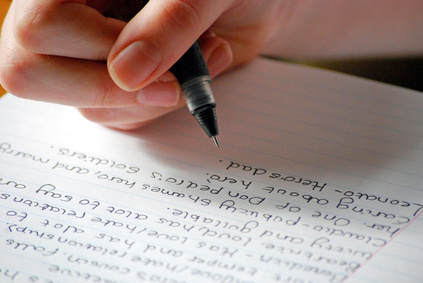
Some Useful Tips To Improve IELTS Writing Skills
Below are some tips to focus on in order to boost your IELTS writing skills.
Vary your Sentence Length
Once you know the different types of sentences, you should practice using them. The most difficult one is the compound-complex sentence, but even if you don’t know that, you can still get a good score with a mix of simple, compound, and complex sentences. The key is varying the length and type of sentence so it sounds natural. Look at this example:
Firstly, children watch too much TV. It’s bad for their health. It can make them addicted. They will spend too much time indoors. This can make them fat.
The sentences are all short and could easily be mixed together into more interesting patterns:
Firstly, children watch too much TV, which is bad for their health. This habit can cause them to become addicted, resulting in them spending too much time indoors and thus getting fat.
Remember Collocations
Students preparing for the IELTS exam always want to study lots of vocabulary. This is understandable as vocabulary is important for understanding and making yourself understood. However, knowing a word’s meaning is very different from being able to use it. Learn a word in context and you will be able to apply it more easily. When you are learning vocabulary, pay attention to what words commonly go together.
Example:
Verb + thought:
Spare a thought
Spare a thought for all those who are homeless on a cold night like this.
Hear one’s thought
Have you given the new proposal any thought yet? Were keen to hear your thought
One’s thought goes out to somebody/something
Our thoughts go out to all those families who lost relatives in the disaster.
The thought occurs to someone
The thought just occurs to me that it’s mum’s birthday tomorrow and we haven’t got her a card.
Gather one’s thought
The President was taken aback by the question and took a minute to gather his thoughts.
Noun + preposition + thought:
great deal of thought
Shirley doesn’t devote a great deal of thought to her appearance.
freedom of thought
Some places don’t encourage freedom of thought.
school of thought
One school of thought contends that modern man originated in Central Africa.
train of thought
Sorry, where was I? I’ve lost my train of thought.
Avoid using really, so, a lot, very
In IELTS writing, you need to write an essay, using “academic” language. So your goal should be to be reasonably formal/academic. To do so, you should not use imprecise language like really, so, a lot, very, etc
Examples:
1. Many IELTS candidates think that achieving Band 8.0 in IELTS is very hard.
--> Use a stronger word: Many IELTS candidates think that achieving Band 8.0 in IELTS is difficult
Very good --> top-notch, splendid, terrific, excellent, magnificent, fabulous, outstanding, etc
Very bad --> horrible, terrible, outrageous, distressing, awful, etc
Very delicious --> appetizing, delectable, flavorful, scrumptious, enjoyable, palatable, etc
2. Robot-driven car is really controversial --> Robot-driven car is controversial
Do not use Contractions in academic writing
It’s better to write out the words like:
Don’t ==> do not
Can’t ==> cannot
Mustn’t ==> must not
Couldn’t ==> could not
Wouldn’t ==> would not
Isn’t ==> is not
Haven’t ==> have not
Hasn’t ==> has not
Avoid “There is/ There are”
When you write, try to write your ideas in a clear and concise way. There is/there are is extra words that are not needed. So just leave them out to make your sentences stronger and straight to the point.
Example:
There are many issues that students have to face at university
==> Students face a myriad of issues at university.




